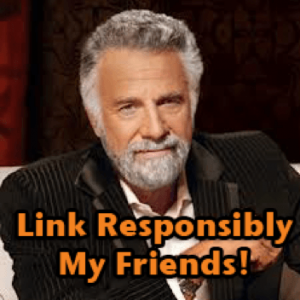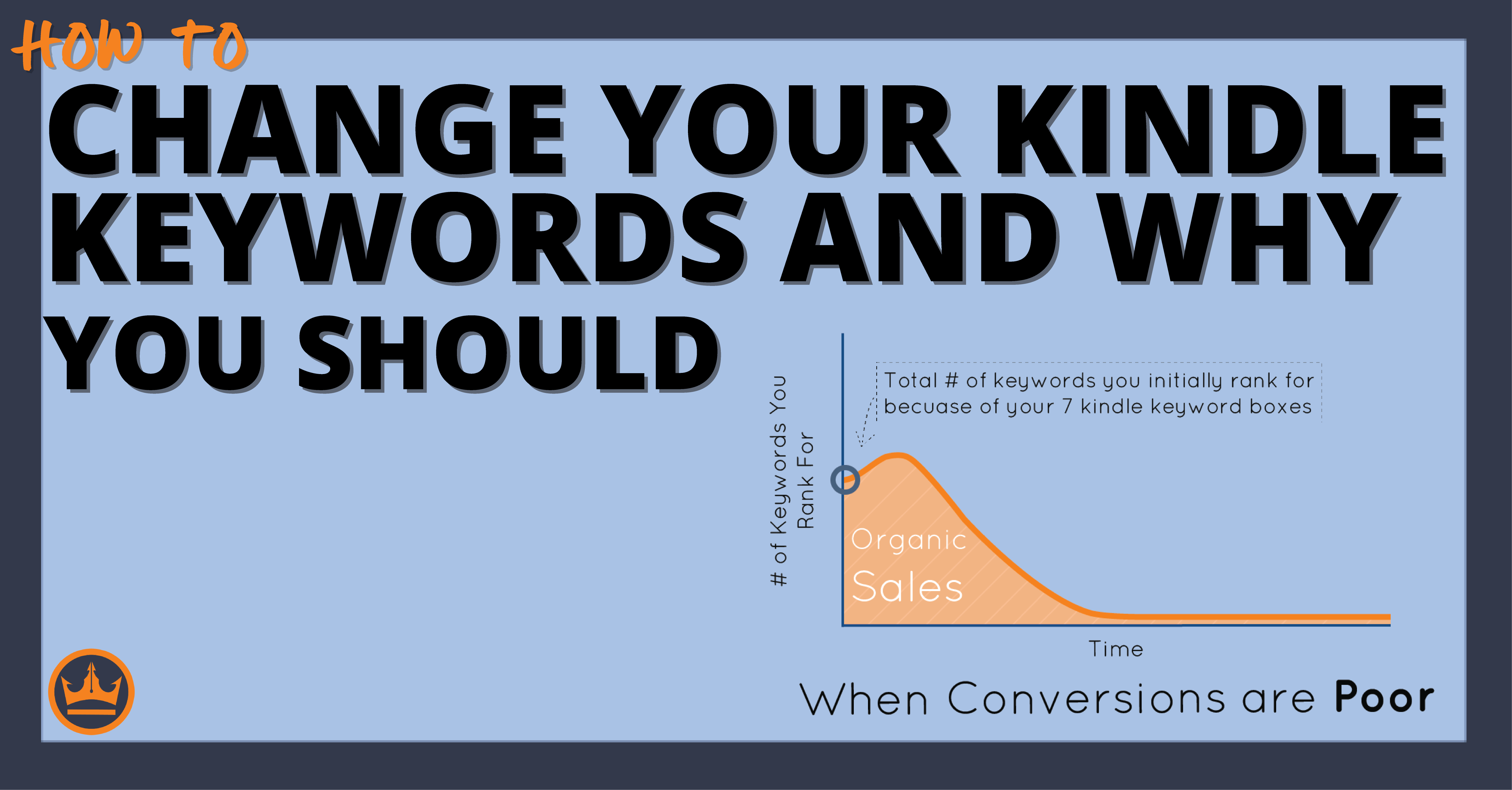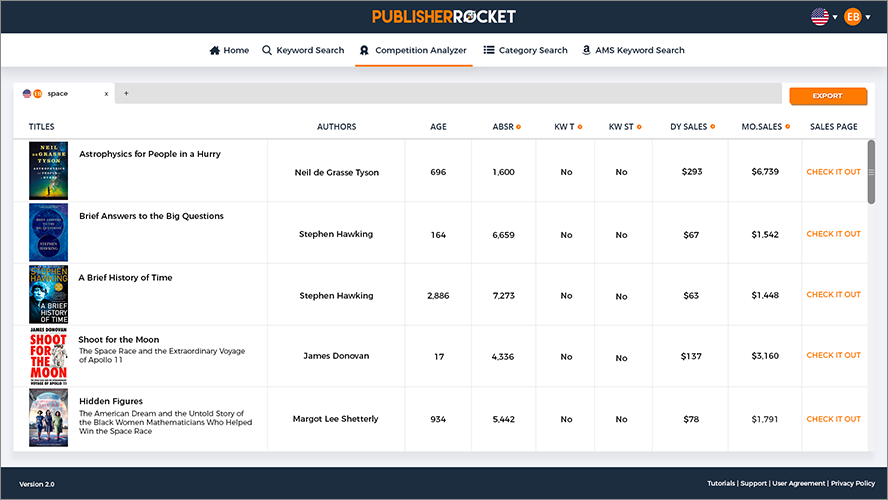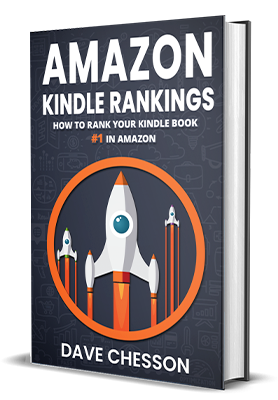Table of contents
There’s a marketing strategy that a lot of people are talking about. It sounds wonderful, and it makes a LOT of sense…but guess what…it’s not good!
Maybe you’ve heard about it?
It’s a link that people think you should use.
But in truth…
It’s quietly killing your books and I believe is quickly becoming one of the reasons why so many decent and legitimate reviews are disappearing.
What’s worse is some people are actually using it without even knowing it.
It’s called the Amazon Super URL. And it's one of the keys to marketing a book on Amazon.
In this article, you’ll learn:
- What an Amazon Super URL is
- How to find out if you are using them – even if you don’t know it
- Why you SHOULD NOT use them
- One special tactic you SHOULD use
What Is An Amazon Super URL?
This:

An Amazon Super URL is a link that was created by going to Amazon, searching for your book using a keyword, clicking on your book, and then copying the link at the top.
Okay…But What’s So Super About That Link?
That may sound innocent and probably something you already do when you are quickly looking for a link to send someone when they ask, right?
But here is where it gets bad and spammy, and why Amazon probably dislikes these links:
Many authors use them to cheat the system.
You see, the Amazon A9 search engine wants to list the products that bring them the most money for that search query. So, according to Amazon, if a higher percentage of people type in a specific keyword, and purchase your book over others, then your book will rank at the top since it proves to Amazon that YOUR book makes the most sales for that keyword.
Because of this ranking factor in Amazon, many authors have started sending Amazon Super URLs to their fans, thinking that these URLs trick Amazon into thinking that the person didn’t click the link…but instead went to Amazon on their own volition, typed in the keyword, found your book, and bought it.
They believe this because, as you can see, the Keyword term is in the link and that was the link that was constructed when THEY did the search:

So, why is that bad?
Why Amazon Super URLs DO NOT Work
In my post on Amazon Link Anatomy, I showed you the secrets to the Amazon link and what it means. I highly recommend you check that out.
But, let’s break down that Amazon link above and discuss the parts that are important in debunking the Super URL theory:
QID: The QID is the number of seconds since January 1, 1970. Yup…that’s right, there is a time stamp inside of the above link. Each time you create an Amazon link using keyword searches, Amazon marks and tracks it.

Book Rankings Number: This shows where the book ranks for that keyword search at the time of the search. In this case, when I did a keyword search for “Make Extra Money,” Nick Loper’s excellent book showed up as the 22nd book in the results. Because a book’s ranking changes all the time, this set of numbers creates what mathematicians would call a check-sum. It validates whether or not the link is true based on the rank at the particular time it was created and that someone hasn’t manipulated the link.

So, what does this mean?
- Amazon tracks when searches are made – so you’re not fooling anyone.
- Amazon knows if you messed with the link – some people actually recommend you remove the QID or book rankings numbers…haha…oy.
As you can see, Amazon won’t be fooled, and the rest of the link structure ensures your attempt to manipulate (if that is what you were intentionally doing) your rankings with this trick won’t work.
If you don’t believe me, then here’s a modern day example. In the news story, notice that Amazon tracked the bad reviews from one link that was posted in Reddit….and boy did they act!
Time stamp? Yup.
High percentage of certain type of review from a link? Yup
Chance that link is producing biased reviews? Yup
…I rest my case.
But It Gets Worse…
Amazon’s terms and conditions do not state anywhere specifically that creating links like this is prohibited. However, they do state MULTIPLE times that any “intent” on manipulating their metrics will be dealt with.
So, keep that in mind as you read the following:
NOTE: This is where I start to connect the dots seeing that lots of people have commented losing legit reviews and a high percentage of those reviews being linked to these type of links.
As we authors know, Amazon has been on a witch-hunt to remove biased reviews. Currently, they use an automatic system that scrubs their database of books looking for violations – the rules at this point are convoluted and are difficult to fully understand.
However, what we do know is that Amazon’s criteria for review removal isn’t consistent. I believe this is because their automatic system calculates the potential of biased review based on certain factors – remember, automatic means automated, which means non-human.
So, using certain factors, Amazon decides the probability that a review is biased and should be removed.
Keep that in mind as we discuss how Amazon Super URL’s play into this.
Seeing that you created a link, used a keyword in order to potentially game their algo system, and a high percentage of those who use that link ultimately leave a review, Amazon’s automated system probably sees the connection and combined with other factors, initiates the auto-removal of the review.
Again, this is just another factor that raises Amazon’s review removal response. That’s why not all reviews are removed, and why there is inconsistency across the board.
This Amazon Marketing 'Hack' Is Silently Killing Your Books #BookMarketClick To TweetAgain, the above is my belief based on the following criteria:
- Amazon’s review removals are inconsistent
- Working with other authors, I've seen a high number of reviews from Super URLs removed
- It is against Amazon’s policy of intent
What Link You Should Use
The best and safest link to send to your raving fans is what I call the base URL. This is the Amazon link up to the 10 digit ASIN number. See below:

Use this or an Amazon Associate link (see below for why this is safe) when sending your fans to buy your book.
Amazon Associate Is Safe
Amazon associate is a program in Amazon where you can create a link, and if someone clicks on it, you earn a percentage of any sale on Amazon within 24 hours.
So, wouldn’t a link you create through this program also be flagged and marked for the reasons discussed above?
Great point. But there are four parts to Amazon Associate that keep us safe and are therefore okay to use – and why I continue to use them myself:
- There are no Keyword Tagging, time tags, or checksums inside of an Amazon Associate link – therefore, there is no “intent” to game the system nor does it affect their algo rankings.
- Amazon actually encourages the use of Amazon Associate links to point to your own book – therefore, they basically say these links are a-okay.
- As someone who loves using Amazon Associate links to point to his books, I’ve never seen any adverse effects of using them.
- When you sign up for an Amazon Associate account, you sign terms and user agreements, making yourself an official Amazon affiliate. You’ve – supposedly – read and understand their rules.
Need Help with Your Keywords?
Take my full featured video course on how to select the best keywords and categories for your book.
Take the CourseConclusion
If you are creating links this way in hopes to game the system, then stop. I’ve proven that they don’t work, and you are only endangering your potential reviews.
If you are using these links by mistake, then I recommend using the base URL instead to minimize the risk that such links are endangering your reviews.
Link responsibly, my friends #BookMarketingClick To TweetEither way, they don’t work and there is GREAT potential that these links are frowned upon by Amazon and their automatic review removal system.

So link wisely my friends!
Cheers,







Hey Dave, I tried to share a ‘clean link’ to a book. When I pasted it to share it, it was clean. It posted clean too. BUT when clicked on it bring me to the Amazon page and the link in the address bar is MASSIVE and not clean at all.
Here is an example:
Clean link to my book – http://www.amazon.co.uk/Dog-Soldie...
But when I share that link and I click it to bring me to the page it looks like this on Amazon –
https://www.amazon.co.uk/Do…I do not know what is happening at Amazon but this is only a recent thing. It usually stays as a clean link when clicked on.
Good news – It is still clean. The rest of the other stuff is attached to the account/logon information. But no QID or search terms or sum checks are in it. Just a indiction of your account, and where you came from.
Would a simple solution be to just tell your readers to type the name of your novel in the amazon search window? I know that we need to have links for other purposes, but this may be a clean solution for many things.
Yup or if you have a target keyword that you want your book to show up for, tell them to type that in, find your book and click and buy that way. Fastest way to rank quickly for that keyword.
Hi, just to say that Amazon use other methods too. I shared the short url with a friend, forgetting that I had once had something delivered to their address, so their address was saved as one of the addresses in my amazon account. Amazon deleted their review almost immediately on posting it!
Yup – lots of factors. I actually have a youtube video on most of them.
I was personally getting annoyed by how often I accidentally send my friends the full amazon super url.
As a programmer, I completely understand why they do it. The typical design idea behind why they put those items in the url like that is so that, if you want to link your friends to search results, you are able to just copy the link. (this is called a GET request, the alternative is a post, a post request hides the information you are sending, in the background, rather than in the URL, It is usually used for bigger data). but your point about tracking review bombs or inauthentic reviews makes a lot of sense too, it helps them make sure that people aren’t sending trolls. (even if they got rid of the super URL part, i’m sure they have a system that also tracks the referring site, which is a thing.)
Yup – There is the parts to teh links and I’m sure they use a lot more behind the scenes
Dave, can I link this article to my youtube video about Bad KDP Practices?
Absolutely!
Thanks man, just went live! Love your stuff!
Thanks buddy. That means a lot to hear!